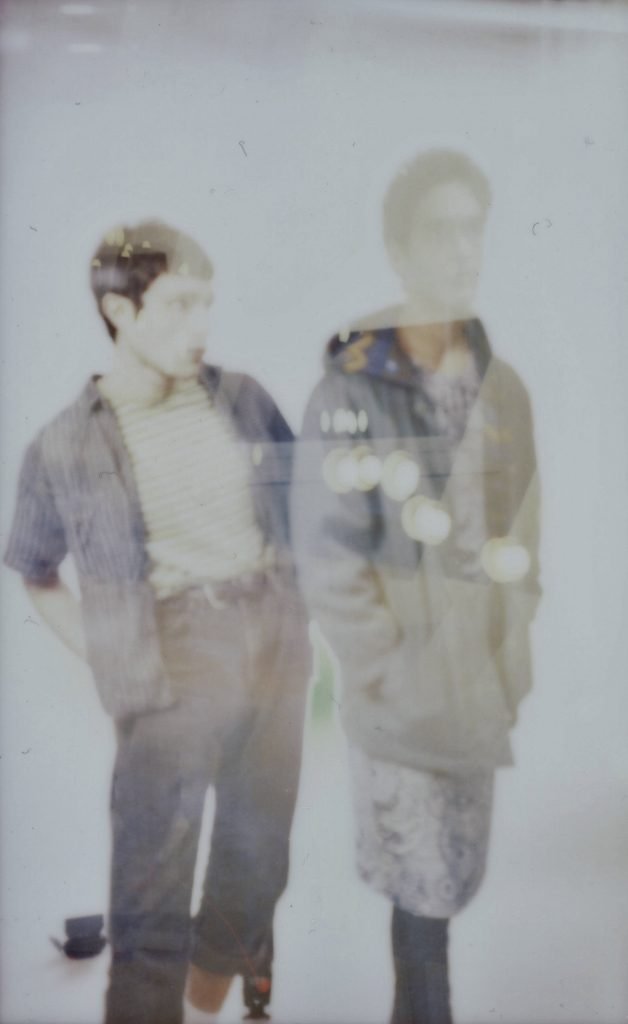Premiere: “Honey Oat” – Honey Oat

Honey Oat sustains. It’s no surprise that Gabe Stout and Janak JP, who first met when they were six, have named their project after something you might have eaten as a child: a sweet and nourishing play on memory. Their new self-titled album blends elements of jazz and soul with Zimbabwean Shona rhythms and a dash of avante-garde hip-hop to form something that sits comfortably beyond the reach of descriptors, soothingly unsettled.
Both Stout and JP pull musical double-duty with Stout on drums and vocals and JP on Wurlitzer and sampler. Their tight-knit duets sound more like a quartet, a feat that’s impressive on the album and mind-boggling if you get a chance to see them live. At its core, Honey Oat is about a musical bond between two people who’ve been playing together for a very long time. The way that songwriting examines memory and relation is married by the musical chemistry that the pair exude.

One could think about Honey Oat in terms of resolutions, encapsulated by the opening track, “A Stranger Spring.” It begins in a frenzy of ascending jazz lines, oscillating between feelings until it finally settles into a head-nodding soul groove that rides the song out. “Loopspool” vamps behind Stout’s haunting falsetto and “Feels Like Feeling” abandons instrumentation entirely, allowing Stout a moment alone. “Wonder In Sights” closes the distance: “I will not forget you/But you will forget me/when I disappear,” Stout insists, the song punctuating his phrases behind him in what cleverly becomes one of the most memorable lines of the project. A song is a kind of memory, a recording is another, and both are working against the existential tide of disappearance and forgetting.
“Peach Cobbler,” Honey Oat’s longest track, sits just before the midway point and serves as a touchstone. JP’s cascading line of chords alongside Stout’s mid-range harmonies crescendo into the closest thing the album has to an anthem. “Lizard Brain” and “Wallpaint” feature the mbira and mesmerizingly layered rhythms of Shona music. This, coupled with Stout’s reverberated musings, serve as some of the album’s more blissfully introspective moments. On “A Small Piece Of String,” the duo takes a backseat to MC Maassai, the lone guest vocalist: “Life is exhausting and it ain’t faint/not much is easily erased/I treat my smile like it’s face-paint,” she opens, voicing some of the album’s concerns head-on. More than a gripe, Maassai’s verse is a concession to that difficulty and lived permanence, a demonstration of how to work through the intricate structure of a song.
Throughout their debut, Honey Oat pull together a surprising number of influences into a project that resists definition. Through that singularity, they gesture towards a meaning that’s universal in its specificity: memories with our oldest friends, memories of home, of love, of something warm and sweet and good.




